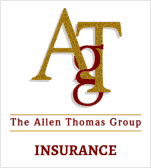Get A Precise Professional Liability Quote In Connecticut Now
It Just Takes A Few Clicks
Or Give Us A Call At (440) 826-3676

Professional Liability Insurance in Connecticut: Tailored Protection for Your Professional Practice From The Allen Thomas Group

Get professional liability insurance in Connecticut to safeguard your practice and professional services from claims of negligence, errors, or breach of professional standards resulting in a financial loss.
At The Allen Thomas Group insurance agency, we develop customized coverage limits that protect your Connecticut business while ensuring compliance with liability insurance requirements.
Get a Free Quote Today!
Table of Contents
Understanding Professional Liability Insurance for Connecticut Professionals
Professional Liability Insurance, also called Errors and Omissions insurance (E&O), protects providers when clients sue over work mistakes or inaccurate advice causing financial harm.
For Connecticut business owners, this coverage helps defend against allegations of professional negligence, breach of duty, or failure to perform contracted services.
If you have questions about professional liability insurance coverage in Connecticut, consult an insurance agent who specializes in professional services protection.
E&O insurance covers a wide range of claims that general liability insurance doesn’t address, as it specifically focuses on financial losses rather than bodily injury claims.
What Professional Liability Insurance Covers in Connecticut
Professional Liability policies in Connecticut typically cover:
- Legal defense costs including attorney fees and court expenses
- Settlements and judgments awarded to clients
- Claims of negligence in your professional services
- Errors or omissions in service delivery
- Breach of contract related to professional services
- Missed deadlines resulting in client financial loss
- Data breaches when combined with cyber liability coverage
Key Terminology: E&O, Malpractice, and Professional Indemnity
Different professions use varying terms for similar coverage:
- E&O Insurance: Common term for consultants, real estate agents, and IT professionals
- Malpractice Insurance: Used by medical and legal professionals in Connecticut
- Professional Indemnity: Often used by architects and engineers
These policies all serve the same fundamental purpose: protecting professionals from claims of inadequate work, mistakes, or negligence.
How Professional Liability Differs from General Liability
Many Connecticut professionals confuse these essential coverages:
| Professional Liability | General Liability |
|---|---|
| Covers financial losses from professional errors | Covers bodily injury and property damage |
| Protects against claims of negligence | Protects against slip-and-fall accidents |
| Includes missed deadlines and contract breaches | Includes product liability and advertising injury |
For complete protection, most Connecticut businesses need both policies.
Connecticut's Mandatory Requirements and Regulatory Framework
The Constitution State imposes specific insurance requirements that vary by profession. Understanding Connecticut’s unique regulatory landscape is essential for proper protection and compliance.
For healthcare practitioners, Connecticut law establishes strict protection requirements:
- Physicians providing direct patient care must maintain minimum coverage of $500,000 per occurrence and $1.5 million aggregate
- Malpractice insurance providers must report policy changes to state authorities
- The Connecticut Department of Public Health monitors compliance through mandatory reporting
- Retired physicians offering pro bono services can secure exemptions through notarized affidavits
Connecticut’s legal community operates under different parameters:
While the state doesn’t mandate malpractice coverage for attorneys, Connecticut Bar Association membership creates de facto standards. Lawyers frequently encounter client contracts specifying minimum coverage limits to protect against settlements from inaccurate advice or oversight.
For small businesses in Connecticut across other fields:
- Real estate professionals face contract-driven requirements for E&O coverage
- Accountants need protection against claims of work mistakes
- Technology consultants increasingly need coverage for digital service failures
- Financial advisors must consider both federal and Connecticut-specific regulations
Learn more about professional liability requirements by contacting an insurance agent who specializes in Connecticut business coverage.
The cost of professional liability insurance per year will vary based on your specific profession and amount of coverage.
Comprehensive Guide to Policy Types for Connecticut Professionals
Connecticut practitioners face important choices when selecting professional liability coverage.
Understanding policy options helps you determine the right amount of insurance for your practice.
Claims-Made Coverage: These predominant policies respond only when both the claim filing and alleged incident occur during your active policy term. Key considerations include:
- Retroactive dates determine how far back incidents are covered
- Premium costs typically begin lower and increase over time
- Legal expenses for defense may reduce your available coverage limits
- Tail coverage (costing approximately 200% of annual premium) becomes necessary when:
- Transitioning to a new carrier
- Retiring from practice
- Changing careers or coverage types
Occurrence Protection: Less common but preferred by many physicians and hospital staff, these policies safeguard against incidents that took place during the coverage period, regardless of when claims surface.
Benefits include:
- No tail coverage requirement when changing insurers
- Higher initial costs but potentially lower long-term expense
- Future claim protection without additional endorsements
- Coverage includes settlements even years after the policy period
Connecticut-Specific Considerations:
- The Connecticut Department of Public Health monitors healthcare provider license and insurance status
- Insurance carriers must report policy cancellations/non-renewals to state authorities
- Connecticut courts have historically favored strict interpretation of policy language
- Per occurrence and aggregate limits must align with both state and contractual requirements
When choosing the right coverage for your small business in Connecticut, consult with an attorney or insurance specialist about the appropriate amount of coverage based on your profession’s unique risk profile.
Common Vulnerabilities for Connecticut Professionals
Connecticut practitioners face distinct exposure patterns that can result in a financial loss. Understanding these vulnerabilities helps in choosing the right professional liability insurance.

Connecticut physicians and hospital staff frequently encounter malpractice claims alleging misdiagnosis, delayed treatment, and failure to provide proper care. With state-mandated minimum insurance coverage of $500,000 per occurrence, practitioners must evaluate whether these limits adequately address potential settlements.
Connecticut attorneys commonly face claims stemming from:
- Missed filing deadlines in court proceedings
- Failure to perform adequate legal research
- Improper handling of client funds
- Conflicts of interest
- Poor communication with clients
Accountants and financial advisors face exposure from:
- Tax filing mistakes
- Inaccurate advice on investments
- Oversight in financial statements
- Failure to identify fraudulent activities
- Missing important deadlines
Insurance covers legal expenses which can quickly exceed $100,000 even when the professional did nothing wrong. An experienced insurance agent can help small businesses in Connecticut understand exclusions that might limit coverage in specific claim scenarios.
Premium Factors for Connecticut Professional Liability Coverage
The cost of professional liability insurance in Connecticut averages approximately $81 monthly, though actual premiums vary widely based on multiple factors specific to your professional services.
Profession-Specific Rate Factors: Connecticut insurance providers determine premium costs primarily according to:
| Medical Field | Legal Profession | Financial Services | Consulting Services |
|---|---|---|---|
| Physician specialty | Attorney practice area | Assets managed | Client industry |
| Hospital affiliation | Claims history | Regulatory exposure | Project complexity |
| Patient volume | Case types | Client sophistication | Contract value |
Policy Structure Elements Affecting Connecticut Premiums:
- Per occurrence and aggregate limits selection
- Deductible amount (typically $1,000-$25,000)
- Whether legal expenses reduce your coverage limits
- Prior acts coverage period
- Exclusions that might apply to specific services
Premium Determinants Unique to Connecticut:
- Connecticut courts have historically awarded higher settlements in professional negligence cases compared to neighboring states
- The cost to defend a lawsuit in Connecticut averages $100,000+ per year
- License requirements for some professions mandate minimum coverage amounts
- Small businesses in Connecticut face different risk profiles than larger organizations
To get professional liability insurance quotes tailored to your Connecticut business, consult a commercial insurance agent who understands both your profession and Connecticut’s specific liability environment.
The premium cost per year is a small price compared to the potentially devastating financial impact of an uninsured claim.
Professional Liability Insurance Exclusions
Understanding what your policy doesn’t cover is crucial for identifying potential gaps in protection.
Professional Liability policies exclude:
- Deliberately fraudulent acts
- Criminal activities
- Malicious behavior
- Dishonest actions
Insurance covers honest mistakes, not intentional wrongdoing.
Most Professional Liability policies don’t cover:
- Physical injuries to clients or others
- Damage to tangible property
- Vehicle accidents
- Premises liability claims
These exposures require General Liability or other specialized coverage.
Common coverage gaps include:
- Prior acts not covered by retroactive dates
- Expired claims-made policies without tail coverage
- Cyber liability exclusions
- Contractual liability limitations
Our team helps identify and close these gaps through strategic policy selection and endorsements.
Connecticut's Comprehensive Protection Portfolio
Professional safeguards function as part of a broader risk management strategy for Connecticut practitioners. The state’s unique business environment and requirements necessitate a coordinated approach to protection.
Essential Connecticut Business Protections:
| Connecticut Workers’ Compensation Insurance | Connecticut Commercial Auto Insurance | Connecticut Cyber Liability Insurance | Property Safeguards |
|---|---|---|---|
| Mandatory for all Connecticut employers, even with just one employee | $25,000/$50,000/$25,000 minimum liability limits | Increasingly critical for data handlers | Physical asset protection |
| Covers medical costs and lost wages | Required for business-used vehicles | Guards against breach costs | Protects business property |
| Non-compliance penalties include business closure | Higher limits recommended for professionals | Notification and recovery expenses | Business interruption coverage |
| No professional exemptions in Connecticut | Vehicles must be properly titled in Connecticut | Connecticut data breach notification law applies | Connecticut-specific hazard coverage |
Connecticut Coverage Integration Strategies:
Successful Connecticut practitioners typically maintain synchronized renewal dates across all policies, ensuring coverage compatibility and preventing gaps. Many insurers offer multi-policy discounts for comprehensive protection programs.
Digital Risk Considerations:
Connecticut’s data breach notification law (Connecticut General Statutes § 36a-701b) applies to all businesses handling personal information, requiring prompt notification of affected individuals. With data breach costs averaging $150 per compromised record, proper cyber protection increasingly complements professional safeguards for Connecticut practitioners.
Connecticut Compliance Best Practices
Maintaining proper coverage requires attention to specific compliance details.
To protect yourself fully:
- Never let policies lapse between renewals
- Pay close attention to retroactive dates when changing insurers
- Secure tail coverage when ending claims-made policies
- Keep prior policy documentation for historical claims
Coverage gaps create significant exposure for Connecticut professionals.
To comply with contractual obligations:
- Review client contracts for specific insurance requirements
- Maintain proper coverage limits as specified
- Provide certificates of insurance promptly when requested
- Understand state-specific mandates for your profession
Failing to meet these requirements can void contracts and create direct liability.
Protect yourself through proper documentation:
- Maintain detailed client communication records
- Document scope of work and deliverables clearly
- Keep signed contracts and change orders
- Record project milestones and deadlines
Thorough documentation provides crucial defense evidence if claims arise.
Some Connecticut professionals may qualify for exemptions:
- Retired physicians providing free services must file notarized affidavits
- Documentation must be submitted to the Connecticut Department of Public Health
- Exemption status must be maintained and verified regularly
Even exempt professionals should consider voluntary coverage for complete protection.
Tailored Professional Liability Insurance Solutions Built For Connecticut Business
Our Independent Insurance Agents in Connecticut know how frustrating and complex the process of finding the right insurance can be.
Let us help build a policy that works for you.

Tell us about your specific needs and we will find the right policy for you.

Review the results of our search.

We will walk you through your new policy step by step.
Our Commercial Insurance Carrier Partners
That allows us to find the best rates for your business.









The Allen Thomas Group Advantage for Connecticut Professionals

With over 20 years of service to Connecticut business owners, our dedicatedCT commercial insurance agents with The Allen Thomas Group bring specialized expertise to practitioners seeking professional liability coverage.
Our Connecticut Professional-Focused Approach:
“Don’t Settle for One-Size-Fits-All. Get Professional Liability Insurance Tailored By People Who Know It Best.”
Our approach addresses the unique needs of Connecticut professionals because:
- One standard policy often contains exclusions particularly problematic for Connecticut providers
- The cost of professional liability insurance varies significantly based on profession and coverage limits
- Sometimes called malpractice insurance, E&O coverage requirements change based on your license type
Expert Guidance When You Need It: Our insurance agents develop protection strategies precisely aligned with your practice’s risk profile by:
- Analyzing your specific Connecticut client contracts
- Evaluating profession-specific claim patterns that could lead to a lawsuit
- Identifying potential coverage gaps in standard policies
- Advising on appropriate per occurrence and aggregate limits
Contact Us Today: When you call our office at (440) 826-3676, we’ll help you understand:
- What exclusions might apply to your profession
- How much coverage you should carry based on your risk exposure
- Whether your policy should include legal expenses within or outside your limits
- Options for settling claims without court involvement
The Allen Thomas Group delivers what generic online quotes cannot: adept counsel informed by decades of Connecticut-specific experience with professional liability claims.
Get More Insights On Making The Right Insurance Decision For Your CT based Company
What type of claims does professional liability insurance cover in Connecticut?
Professional liability insurance in Connecticut covers claims of negligence, errors and omissions, breach of professional duty, missed deadlines, documentation mistakes, and allegedly improper advice resulting in client financial harm. It specifically protects against economic damages rather than bodily injury or property damage claims, which would be covered under general liability policies.
How much coverage should a professional carry for their liability insurance in Connecticut?
Healthcare providers must carry minimum coverage of $500,000 per occurrence and $1.5 million aggregate, while other professions should align coverage with their specific risk exposure and client contract requirements. Most Connecticut professionals should consider limits between $500,000 and $2 million based on their practice size, client profile, and industry-specific litigation patterns.
What professions require professional liability insurance in Connecticut?
Connecticut law mandates professional liability insurance for physicians, dentists, and physical therapists providing direct patient care, while other healthcare practitioners face industry-specific requirements. Although attorneys, real estate agents, architects, IT consultants, and financial advisors aren’t subject to state-mandated coverage, most face contractual obligations requiring professional liability protection as a condition of client engagement.
Connecticut Cities We Provide Professional Liability Insurance
Ansonia
Avon
Berlin
Bethel
Bloomfield
Branford
Bridgeport
Bristol
Brookfield
Brooklyn
Burlington
Canton
Cheshire
Clinton
Colchester
Conning Towers Nautilus Park
Coventry
Cromwell
Danbury
Darien
Derby
East Haddam
East Hampton
East Hartford
East Haven
East Lyme
East Windsor
Ellington
Enfield
Fairfield
Farmington
Glastonbury
Granby
Greenwich
Griswold
Groton
Guilford
Hamden
Hartford
Hebron
Kensington
Killingly
Ledyard
Madison
Manchester
Mansfield
Meriden
Middletown
Milford
Monroe
Montville
Naugatuck
New Canaan
New Fairfield
New Haven
Newington
New London
New Milford
North Branford
North Haven
Norwalk
Norwich
Oakville
Old Saybrook
Orange
Oxford
Plainfield
Plainville
Plymouth
Portland
Prospect
Putnam
Redding
Ridgefield
Riverside
Rocky Hill
Seymour
Shelton
Simsbury
Somers
Southbury
Southington
South Windsor
Stafford
Stamford
Storrs
Stratford
Suffield
Thompson
Thompsonville
Tolland
Torrington
Trumbull
Vernon
Wallingford
Wallingford Center
Waterbury
Waterford
Watertown
West Hartford
Weston
Westport
Wethersfield
Willimantic
Wilton
Winchester
Windham
Windsor
Windsor Locks
Wolcott
Woodbridge
Woodbury


